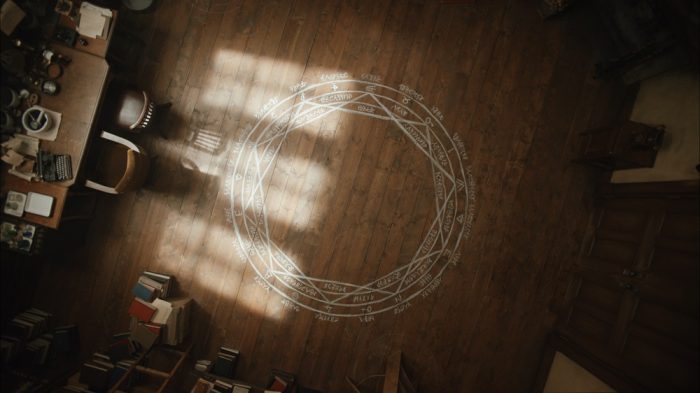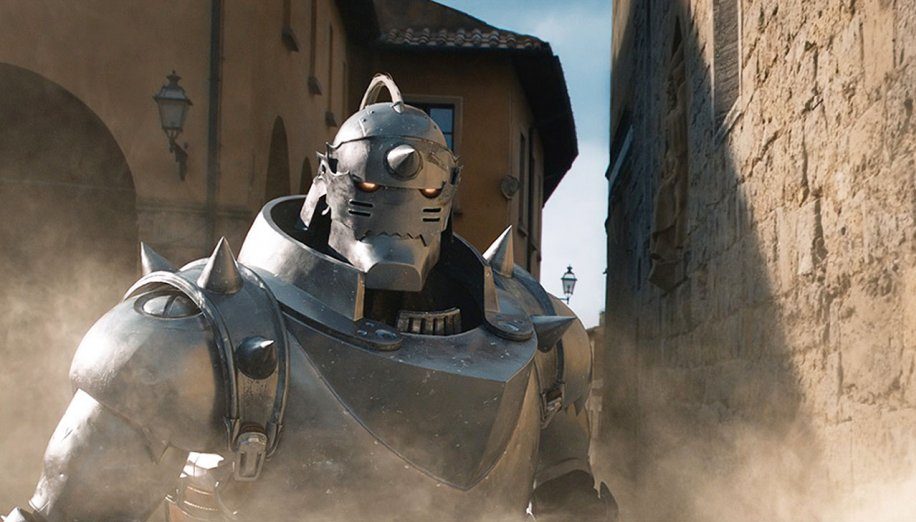Director: Fumihiko Sori
Tokyo International Film Festival review
Fumihiko Sori’s live-action adaptation of Fullmetal Alchemist is a film that’s clearly meant first and foremost for the established fanbase of the popular manga series and the anime show it spawned, making it a curious and sometimes confusing viewing experience for the uninitiated. While those already familiar with the existing twenty-seven volumes’ worth of fantastical adventures in the fictional country of Amestris may well see things differently, the new Fullmetal Alchemist from this humble outsider’s perspective is an uneven, silly and somewhat messy work, but dammit all if it isn’t an adequately fun time too that’s usually at its most deliriously enjoyable whenever things get loud, gothic and operatically unsubtle.
In the alternate history of Fullmetal Alchemist, the archaic study of alchemy (the transmutation of matter) has evolved into a powerful means of shaping the world, to the point of being practiced by the military and some of the state’s most dangerous enemies. Though the film is careful to put some lines in the mouth of one character to insist that alchemy is a form of science and not magic, the claim holds about as much weight as a middle-aged George Lucas lecturing us about midichlorians. These alchemists are wizards who are capable of making stone creatures emerge from the ground and fire spontaneously engulf the air, among other wondrous feats that can make for some pretty creative action scenes.
One especially skilled practitioner is the young Ed, the titular Fullmetal Alchemist who earned this name due to his mechanical arm and leg. That title, however, would be at least as applicable to Ed’s brother, Al, who was cursed to be a body-less entity living inside a suit of armour as an indirect consequence of Ed’s botched attempt to transmute their deceased mother back into existence.

The theological implications of this failed necromancy are confirmed in the names of the film’s main villains, three humanoid shape-shifters called Lust, Envy and Gluttony, the last of whom steals multiple scenes as a man-eating dope who strikes a terrific balance of funny and frightening. With a plot that’s even harder to concisely summarise than it is to follow, these and many more humans and human-like creatures are wrapped up in a muddled web of conflicts involving sinister science, political upheaval and Ed’s quest to get his brother’s body back.
Though the hazardous consequences of meddling with nature and the evils of rampant military authority are two clear (albeit, underdeveloped) concerns of the narrative, the more intriguing themes are of a relatively abstract nature. As a film that deals in the manipulation of physical matter, the creation of life and the intangible nature of the human soul (one of our heroes, after all, doesn’t even have a body), Fullmetal Alchemist carries an eerie existential undercurrent in its more compelling moments that’s manifest most effectively in the film’s best scene.
When Al, in a paranoid state which sees him swamped with doubts regarding his own memories and identity, confronts Ed with suspicions about his intentions, the brothers work through their feelings in a brutal punch-up that never lets you forget the affection that persists between the two opponents. As a surprisingly poignant evocation of the power of love to cut through all the existential messiness and mystery of life to provide solid truth and meaning in this world, the scene provides a rare case of the film’s often thinly applied themes amounting to more than just window dressing and suggesting something that’s maybe even a little profound.

Elsewhere, the biggest flaws of Fullmetal Alchemist are perhaps those which we’ve come to associate in general with live-action adaptations of popular manga. Its efforts to condense a large body of work into feature-length form render the film overstuffed with plots and side-plots – much of it expressed hurriedly in flatly expositional dialogue – while a plethora of fan-pleasing characters are thrown into the fray with insufficient development or purpose (Ed’s friend and sidekick Winry is especially inconsequential).
What’s more, Sori’s attempt to translate the flashy, hyperbolic aesthetics of the manga and anime to the big screen underestimates the differences in the mediums. Eccentric character designs and colourful spectacles that may have looked marvellous in illustrated form now come with a twinge of corniness in a live-action context, despite the makeup and effects departments’ best efforts.
Sori’s Fullmetal Alchemist most consistently overcomes its naffer components when the film embraces its dark side, which is fortunately exactly what it does in the overwhelming fire and fury of its final third, providing a thunderous mixture of horror show spectacle and overblown melodrama. Not even Mad Max: Fury Road could make the old cliché of the hero dropping to their knees and crying “No!” seem exciting again but Ed manages just that in the climax without it even being entirely clear what he’s this upset about.
Had Fullmetal Alchemist’s bulky 133-minute runtime been trimmed down to emphasise its most gloomy, sinister or just plain outrageous moments, it would’ve likely stood a better chance of winning over an audience beyond the devotees of its pre-established franchise, but as it stands, the obvious sequel-baiting in the film’s closing minutes suggests that the best may be yet to come.
The Tokyo International Film Festival is held from the 25th October to the 3rd November. More info here.








